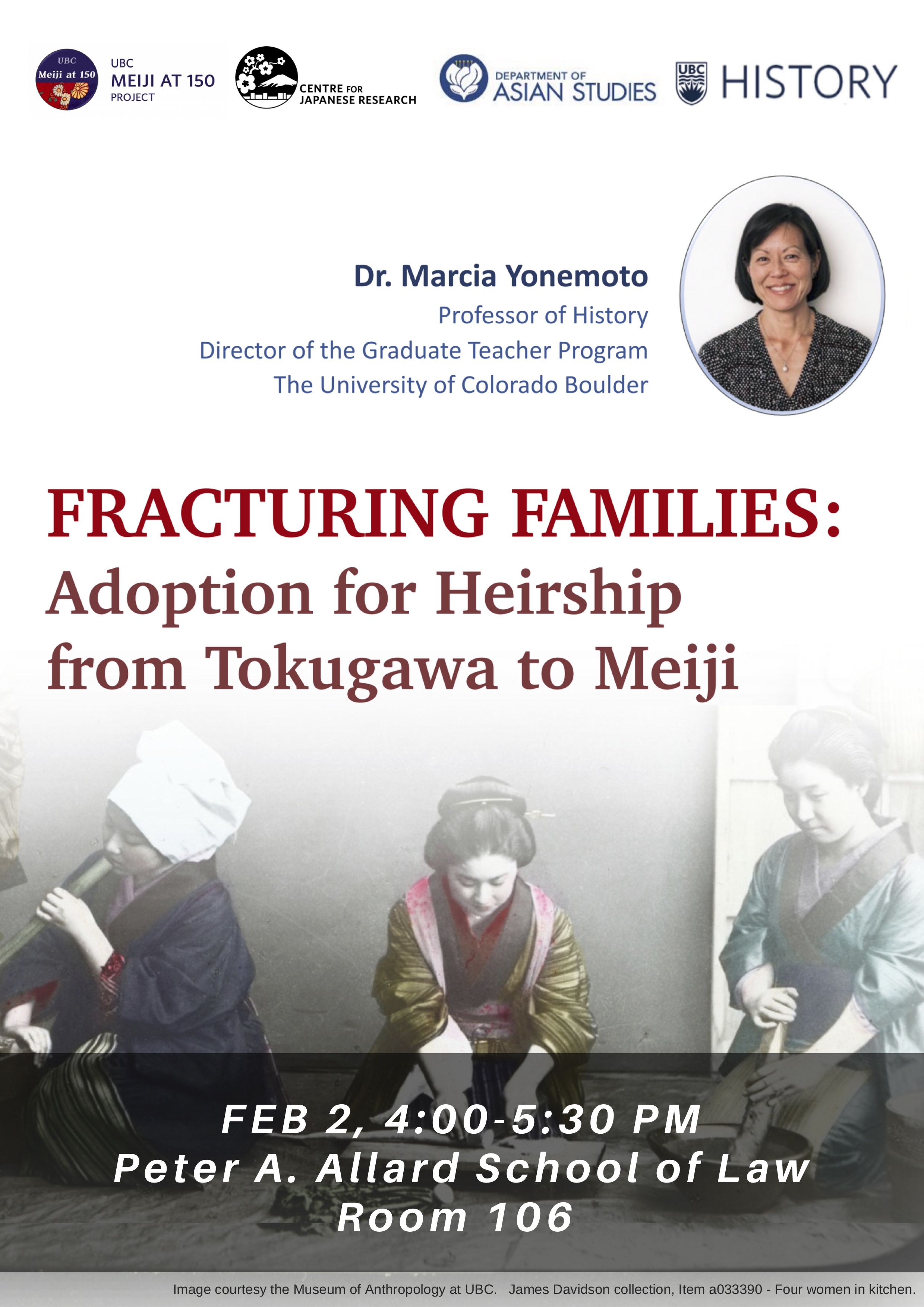
The social and political importance of families and family continuity transcended the Tokugawa-Meiji divide. This talk focuses on a common strategy for preserving a family line: the adoption of heirs, especially the adoption of sons-in-law. While the practice of son-in-law adoption remained frequent from Tokugawa to Meiji, the legal, ideological, and sociocultural context in which it occurred shifted significantly, resulting in new and sobering—even alarming—public images of adopted heirs and family disintegration by the turn of the twentieth century.
About the Speaker:
Marcia Yonemoto is Professor of History and Director of the Graduate Teacher Program at the University of Colorado Boulder. She received her Ph.D. in Japanese history from the University of California, Berkeley, and has been teaching at CU since 1995. Prof. Yonemoto teaches courses on Japanese history, women’s and family history, historical methodology, and global history at the undergraduate and graduate levels. Her research interests are in the cultural history of Japan’s early modern period (c. 1590-1868). She is the author of the books Mapping Early Modern Japan: Space, Place, and Culture in the Tokugawa Period (1603-1868)(University of California Press, 2003) and The Problem of Women in Early Modern Japan (University of California Press, 2016). Her scholarly articles have appeared in The Journal of Asian Studies, Japan Forum, The Geographical Review, East Asian History, the U.S.-Japan Women’s Journal, and other venues. Her current research project is a history of adoption in Japan from 1600 to the present.
This event is jointly sponsored by the UBC Meiji at 150 Committee, Centre for Japanese Research, Department of History and Department of Asian Studies.
 Faculty of Art
Faculty of Art